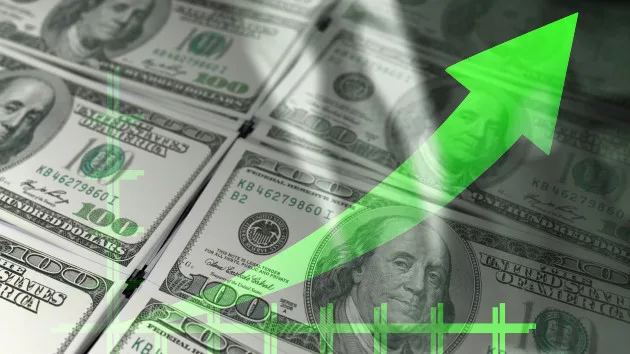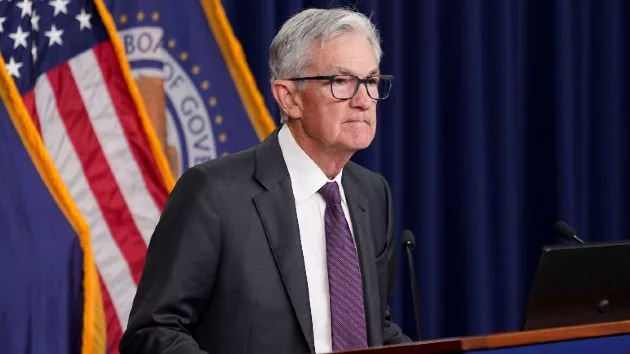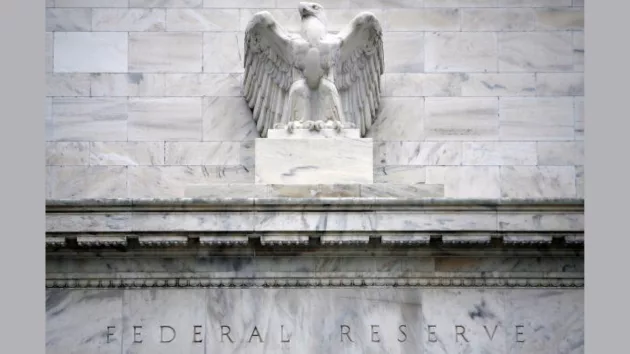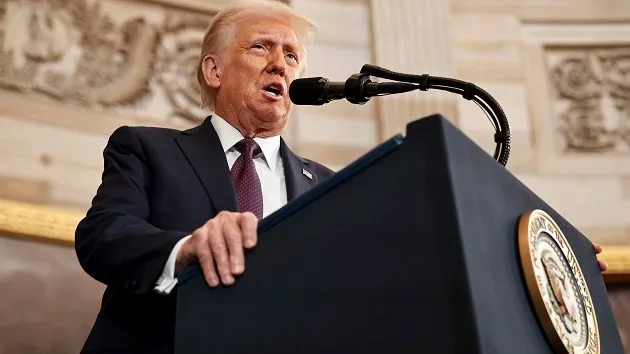
(NEW YORK) — Fresh inflation data on Wednesday will show whether the U.S. has extended a monthslong stretch of progress in the fight to slow price increases.
The latest price reading is set to arrive within days of a dramatic bout of market turmoil triggered in part by heightened pessimism about the chances of a “soft landing,” in which the U.S. averts a recession while inflation returns to normal levels.
The unrest on Wall Street followed a weaker-than-expected jobs report that indicated the economy may be slowing down more quickly than previously known.
Economists expect prices to have risen 3% in July compared to a year ago. That figure would leave the inflation rate unchanged from June but still well below the 3.5% year-over-year rate recorded in March.
Inflation has cooled for four consecutive months, reversing a surge in prices that took hold at the outset of 2024. Price increases have slowed significantly from a peak of more than 9%, but inflation remains a percentage point higher than the Fed’s target rate of 2%.
Since last year, the Federal Reserve has held interest rates at their highest level in more than two decades. High borrowing costs for everything from mortgages to credit card loans have helped slow the economy and lower inflation, but the policy risks tipping the U.S. into a recession.
The chances of an interest rate cut at the Fed’s next meeting in September are all but certain, according to the CME FedWatch Tool, a measure of market sentiment. Market observers are split roughly down the middle about whether the Fed will impose its typical cut of a quarter of a percentage point or opt for a larger half-point cut.
The Fed is guided by a dual mandate to keep inflation under control and maximize employment. In theory, low interest rates help stimulate economic activity and boost employment; high interest rates slow economic performance and ease inflation.
A monthslong stretch of good news for inflation alongside bad news for unemployment has prompted the Fed to give additional consideration to its goal of keeping Americans on the job, Fed Chair Jerome Powell said last month.
“For a long time, since inflation arrived, it’s been right to mainly focus on inflation. But now that inflation has come down and the labor market has indeed cooled off, we’re going to be looking at both mandates. They’re in much better balance,” Powell said at a meeting of The Economic Club of Washington, D.C.
“That means that if we were to see an unexpected weakening in the labor market, then that might also be a reason for reaction by us,” Powell added.
The weak jobs report released earlier this month appeared to align with that hypothetical situation described by Powell.
Speaking at a press conference in Washington, D.C., in late July, before the jobs report, Powell said the central bank may reduce interest rate cuts in September, depending on economic performance.
“We’ve made no decisions about future meetings and that includes the September meeting,” Powell said. “We’re getting closer to the point at which we’ll reduce our policy rate, but we’re not quite at that point yet.”
Copyright © 2024, ABC Audio. All rights reserved.








